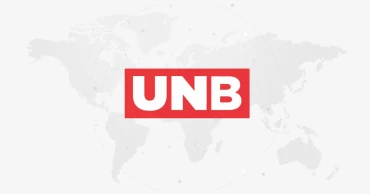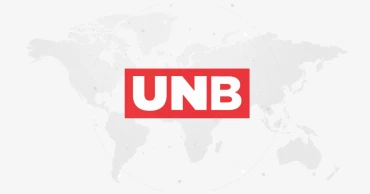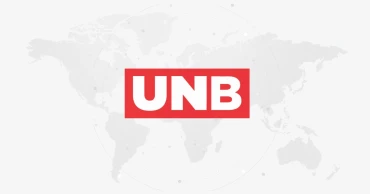National Bank
Estimates suggest over Tk 1 lakh crore in embezzled funds: Govt launches major banking reforms
Bangladesh Bank and the interim government are undertaking significant efforts to restructure the country’s banking sector, focusing on recovering both local and foreign assets embezzled by corrupt individuals. Officials have confirmed that these assets, laundered abroad, are being targeted for repatriation as part of a broader initiative to bring the financial sector up to international standards.
The government emphasized its commitment to reforming the financial sector, acknowledging that the process is complex and time-consuming. A key element of this strategy will be the establishment of a banking commission tasked with investigating each implicated bank, uncovering the full extent of the corruption, and developing an action plan, according to the Chief Adviser’s press wing. This plan, which can be implemented within six months, aims to overhaul the sector to ensure compliance with global banking norms.
The aim of Bangladesh Bank and the government is to be capable of complying with all international standards and building a strong banking sector. However, international technical assistance and funding will be required from the beginning to the end of the activities to achieve this objective.
Read more: Bangladesh Bank reconstitutes boards of 3 banks, inc. two controlled by S Alam Group
The reforms come in response to revelations that unscrupulous businessmen and influential figures have embezzled vast sums from the banking sector, laundering the funds abroad through fraudulent activities. Preliminary estimates suggest the total embezzled amount could exceed Tk 1 lakh crore, though the exact figure is still being determined.
Significant steps have already been taken, with reforms initiated in several banks linked to the scandal. The boards of Islami Bank, Social Islami Bank, National Bank, United Commercial Bank, Global Islami Bank, and Union Bank have been reconstituted as part of the restructuring efforts. Similar measures will be implemented across other affected banks and financial institutions.
The government has also sought assistance from foreign agencies to track and repatriate the laundered funds. As the new management teams take control, they will be responsible for gathering accurate data on the embezzled amounts and leading the recovery efforts.
Read more: Businesses agree with central bank's steps against bank robbers: DCCI
1 year ago
Sikder Group responds to allegations following ACC case against directors
Sikder Group, a prominent business conglomerate in Bangladesh, has issued a statement in response to various media reports regarding a case filed by the Anti-Corruption Commission (ACC) against its directors, Rick Haque Sikder and Ron Haque Sikder. The group alleges that certain vested interest groups are conspiring to tarnish its reputation by disseminating misleading information.
The statement highlights that the accusations, particularly concerning alleged money laundering involving National Bank's credit card, are unfounded. It clarifies that the Sikder Group directors lawfully utilized $9.83 million abroad through credit cards, subsequently settling the total amount, including $2.04 million in interest and charges, from their foreign earnings in accordance with Bangladesh Bank regulations. This matter was resolved two years prior, and the recent resurgence of these allegations is deemed to be maliciously motivated, the statement says.
Additionally, Sikder Group explains that the credit cards in question were linked to Foreign Currency (DC) accounts, which are exempt from the standard $12,000 travel quota limit.
Eid holiday: Trade activities through Benapole port to be suspended for 5 days
The conglomerate emphasizes its longstanding commitment to ethical business practices both domestically and internationally. Sikder Group, founded by Freedom Fighter Zainul Haque Sikder, has made significant contributions to Bangladesh's development sectors, including healthcare, education, and infrastructure, the statement says.
The group suggests that the malicious targeting has intensified following the death of its founder, Zainul Haque Sikder. It asserts that under the leadership of Rick Haque Sikder and Ron Haque Sikder, it has continued to achieve remarkable progress, despite ongoing attempts by detractors to hinder its growth. The statement condemns these actions, especially at a time when Sikder Group is endeavoring to secure foreign investment for key national projects, and calls on the public to disregard the baseless accusations circulated by these conspirators.
1 year ago
Borrowing at 9 percent could be troubling for Islami, Al-Arafah and National Bank: Economists
Some private sector banks in Bangladesh are in deep crisis because of lack of adequate liquidity and are being forced to borrow money from state-owned Sonali Bank at a 9 percent interest rate to stay afloat.
Islami Bank, Al-Arafah Islami Bank and National Bank are borrowing money from Sonali Bank at a 9 percent interest rate, which is the highest commercial lending rate at present.
Economists and banking sector insiders say that it means the sector is passing through a hard time due to higher non-performing loans, lack of good governance and serious corruption in the management of the respective banks.
They say at present the call money rate is between 6-7 percent while banks are borrowing at 9 percent rate, which proves the crisis has mounted in these banks. They also say the troubled banks have no other options, but to borrow money.
Also read: 5 held for spreading rumors on social media about Islami Bank, S Alam group
Both such borrowing and lending are very risky considering the ability of investment of these banks, they say.
BRAC Bank Chairman Dr Ahsan H Mansur told UNB that some banks have lost their customers’ trust due to their mismanagement.
“As a result, people have withdrawn money from those banks,” he said.
Giving an example he said that the deposit of BRAC Bank increased by 33 percent in the last quarter while the deposit volumes of many banks decreased.
Also read: Scam-hit Islami Bank earns operational profit in 2022, Basic Bank reports loss
Usually, banks charge a higher interest rate to lend to other banks while considering it risky, he said.
On 13 December 2022, the Sonali Bank’s Board of Directors approved the investment of Tk200 crore in fund placement in favour of Islami Bank Bangladesh Limited and Tk75 crore in favour of Al-Arafah Islami Bank Limited at a 9 percent lending rate for a period of 90 days.
On the same day, the bank's Board also agreed to the proposal to extend the term of the Tk150 crore loans to National Bank for another six months at 9 percent interest subject to payment of the previous interest.
It is a normal practice that when a bank faces a liquidity crisis it borrows from another bank via the interbank money market.
Read More: 60% bank sub-branches must be outside city corporations, municipal areas: Bangladesh Bank
But the liquidity situation in three private sector banks is so critical that they are forced to borrow from another bank at the highest commercial lending rate.
According to the Bangladesh Bank's guidelines, banks can charge a maximum of 9 percent interest on all types of loans other than consumer loans such as auto loans and personal loans, in which case the highest lending rate ceiling is 12 percent.
Professor Dr Abul Barakat told UNB that any short-term borrowing at such a rate is not harmful, but it could create trouble while getting such loans will be lingering.
He said banks sometimes face a liquidity crisis, then it is required to borrow to meet the instant crisis. But a 9 percent lending rate for banks is high.
Read More: Bangladesh Bank expects first instalment of $4.5 b IMF loan to arrive by next month: Spokesman
“Then how much a bank would have to charge against any commercial loans,” he asked.
Sector insiders say corruption and lack of good governance are the main reasons behind such a crisis.
Some questioned the role and the ability of the central bank of Bangladesh to regulate commercial banks that fail to check corruption.
3 years ago
National Bank donates Tk11 crore to PM's relief, welfare fund
National Bank has donated Tk11 crore to the Prime Minister's Relief and Welfare Fund for the flood-hit people.
On behalf of National Bank Chair Monowara Sikder, her son Rick Haque Sikder and daughter Pervin Haque Sikder handed over a cheque to Dr Ahmad Kaikaus, principal secretary to the prime minister, at the Prime Minister's Office Monday.
Also read: PM: Connectivity is key to national development
Prime Minister Sheikh Hasina joined the ceremony online.
The Bangladesh Association of Banks donated over Tk300 crore to the Prime Minister's Relief and Welfare Fund at the ceremony, according to a media statement.
Read AIBL donates Tk10 crore to PM's relief, welfare fund
3 years ago
Bank Jobs: National Bank is hiring in various positions
Private sector National Bank Limited has announced recruitment of manpower for three posts. No prior experience is required to apply for these posts. Newly graduated pass students from public / private universities can apply.
Position Name: Probationary Officer
Position: Not specified
Educational Qualification: Post Graduate / MBM / MBA from Government / Private / Foreign University. Must have postgraduate degrees in Economics, English, Statistics, International Relations, Public Administration, Law, Mathematics, Accounting, Marketing, Finance, Banking, International Trade, MIS, AIS, HRM and Management. Apart from this, MSc / BSc pass candidates from Environmental Science, Computer Science, Electrical, Mechanical, Civil, Architecture, Agriculture and Agro-Economics can apply.
GPA in SSC and HSC should be 4.50 on a scale of 5.00. Undergraduate and postgraduate CGPA should be 3.50 on a scale of 4.00.
Age: Maximum 30 years
Salary: While being a trainee, the monthly salary is TK.34, 500. At the end of the apprenticeship the salary will be TK. 48,500
Position Name: Junior Officer (General) and Junior Officer (Cash)
Position: Not specified
Educational Qualifications: To apply for the post of Junior Officer (General), the candidate must have a post graduate degree from any university. And for the post of Junior Officer (Cash) you need to have at least a bachelor's degree. GPA in SSC and HSC should be 4.00 and CGPA in undergraduate and postgraduate should be at least 2.25.
Age: Maximum 30 years
Salary: During the training, the monthly salary is TK. 18,300. At the end of the apprenticeship the salary will be TK.29, 900.
The way the application
Interested candidates need to go to the National Bank website and apply by clicking on the Career tab. CV will not be taken by post / courier / direct / mail.
Last date of application: 17 December 2021
Also Read:Bank Jobs: Standard Bank Job Circular
4 years ago
Exim Bank files case against Sikder Group directors
Exim Bank has filed a case against two directors of Sikder Group accusing them of abduction and attempted murder of its Managing Director (MD) Haider Ali Khan and the AMD of the bank over a loan request.
5 years ago
National bank official among 4 remanded over missing Tk 80 lakh
A Dhaka court on Tuesday granted police one day to interrogate four people including an executive officer of National Bank, in a case filed in connection with Tk 80 lakh going missing.
5 years ago



.jpg)

.jpg)




